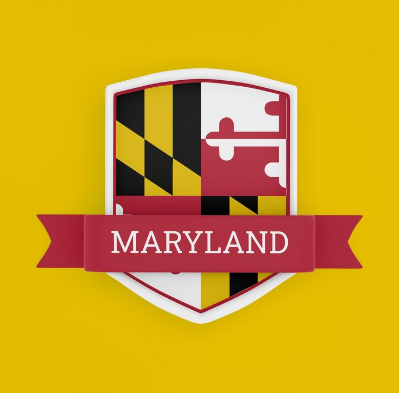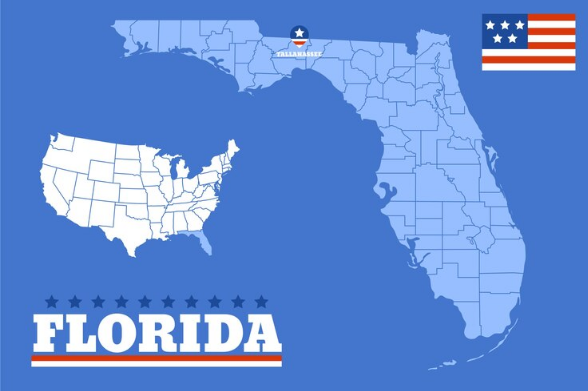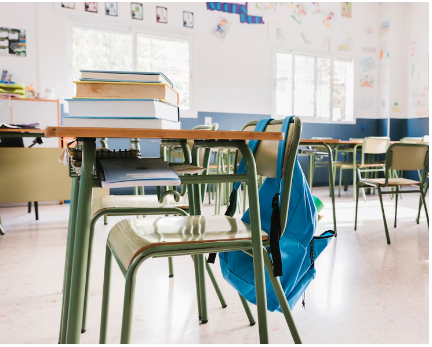Dyslexia Schools In Kansas

When evaluating dyslexia-friendly schools in Kansas, it's essential to apply a rigorous, multi-faceted approach to ensure that these institutions truly support students with dyslexia.
Schools should be assessed based on their ability to offer specialized programs, trained staff, evidence-based teaching methods, and access to assistive technology.
In Kansas, schools that are considered dyslexia-friendly often excel in these areas, providing a supportive environment that fosters academic and personal growth for students with dyslexia.
By collaborating with experts, collecting data through surveys and observations, and validating findings with parents and educators, we can confidently recommend schools that genuinely meet the needs of dyslexic students.
Continuous monitoring and feedback ensure that these recommendations remain relevant and effective, offering Kansas families reliable guidance in choosing the right educational setting for their children.
This article will guide you through some of the top dyslexia-friendly schools in the area, providing you with the information you need to make an informed decision for your child's education.
The schools recommended have been carefully evaluated based on their specialized programs, the dedication of their staff, and their use of proven teaching methods.
We’ve spoken with parents, educators, and experts, and seen firsthand what works. The schools that made the list have shown a real commitment to helping students with dyslexia succeed, both academically and personally.
We want to make sure you have the information you need to choose a school where your child will feel supported, understood, and encouraged to reach their full potential.
What is the Percentage of Dyslexia Amongst Students In Kansas?
- According to the Kansas Dyslexia Handbook and KSDE resources, 15–20% of the total population have characteristics of dyslexia — such as slow/inaccurate reading, poor spelling, etc. .
- The International Dyslexia Association (IDA) similarly states that up to 20% of people show some dyslexia symptoms.
- ≤ 5.3% of Kansas students are formally identified with an SLD under IDEA (which includes dyslexia among other disorders).
- However, 15–20% may exhibit dyslexia‑related traits, meaning many more may experience reading difficulties than are formally classified.
Sources : (ncld.org, kasb.org) (thebeaconnews.org)
Legislation and Policies for Dyslexia In Kansas
1. Kansas House Bill 2602 (2018) – Mandatory Dyslexia Screening
- What it does: Requires the State Board of Education to develop rules for dyslexia screenings in schools, beginning with the 2019–20 school year.
- Key provisions:
- Screen all students for dyslexia or related disorders.
- Notify parents if screening shows risk and recommend diagnostic evaluation (e.g., by a psychologist).
- Allows families to request formal disability evaluations (IEP, 504 plan).
- Screen all students for dyslexia or related disorders.
- Definition provided: Defines dyslexia as a neurobiological learning disability affecting reading accuracy, fluency, spelling, and decoding.
Source: (kslegislature.gov, ksde.gov)
2. 2018 Legislative Task Force on Dyslexia (KSA 72-8193)
- Purpose: Created to advise the governor, legislature, and State Board on evidence-based dyslexia practices.
- Responsibilities include:
- Recommending evidence-based reading interventions.
- Advising on pre-service and in-service training for teachers.
- Examining implementation of state/federal laws.
- Identifying valid screening tools and protocols within a multi-tiered intervention framework.
- Recommending evidence-based reading interventions.
- Duration: Task force met six times in 2018 and annually through 2021; expired June 30, 2022.
Source: (kslegislature.gov, ksde.gov)
3. Kansas Dyslexia Handbook & KSDE Implementation
- KSDE Dyslexia Handbook (Revised April 15, 2024):
- Provides definitions, characteristics, screening flowcharts (K–8; high school), intervention strategies, and evidence-based instruction guidelines.
- Mandates universal screening K–grade 9+, at least three times per year, with approved tools like DIBELS, Acadience, FastBridge, etc..
- Provides definitions, characteristics, screening flowcharts (K–8; high school), intervention strategies, and evidence-based instruction guidelines.
- Updated 2023–24 protocol (July 2023):
- Continues three annual screenings K–8 with KSDE-approved subtests; high school screenings added for 9th grade in fall .
- Continues three annual screenings K–8 with KSDE-approved subtests; high school screenings added for 9th grade in fall .
Sources: (ksde.gov) (ksde.org)
Structured Literacy & Science-of-Reading Standards
- KSDE/State Board mandate (Feb 14, 2024):
- Requires all accredited schools to use structured literacy rooted in the science of reading; prohibits ineffective methods.
- Requires all accredited schools to use structured literacy rooted in the science of reading; prohibits ineffective methods.
- Task force recommendations (2020–2021):
- Schools to implement tiered supports (e.g., MTSS, KESA).
- KSDE published a structured literacy checklist and screening rubric.
- Dyslexia coordinator role created within KSDE (filled by 2021).
- Schools to implement tiered supports (e.g., MTSS, KESA).
Sources: (kslegislature.gov)
5. House Bill 2322 (2023) – Inclusion in Special Education Law
- What it changes:
- Adds dyslexia explicitly to the Special Education for Exceptional Children Act.
- Changes "emotional disturbance" designation to "emotional disability" to reduce stigma.
- Adds dyslexia explicitly to the Special Education for Exceptional Children Act.
- Support & impact:
- Passed unanimously in House (120–2) and Senate (40–0).
- Governor Laura Kelly signed it into law April 2023.
- Advocates highlighted the necessity for recognition and support of dyslexic students.
- Passed unanimously in House (120–2) and Senate (40–0).
Source: (kansasreflector.com)
What Type of School Is Best For a Dyslexic?
The ideal schools are the ones where students can learn without all that unnecessary stress weighing them down.
Plus, these schools are all about recognizing the unique strengths that come with dyslexia, like creativity and thinking big-picture.
If your kid has a special interest, whether it's engineering, chess, music, or anything else under the sun, these schools give them the time and space to chase their passions.
Forget about just hunting for "reading programs" right away because, believe it or not, dyslexic students often thrive when their reading lessons align with their interests.
Now, here's the deal: if your child isn't loving school and isn't coming home all pumped up about learning, it might be time to explore other options. And guess what? That's perfectly okay – even awesome.
You can take your child out of a place that doesn't fit, even if you don't have the next school lined up right away. It's a powerful message to your child that you're in their corner and ready to support them.
Let them take a breather, catch up on some sleep, and in the meantime, you can figure out the next steps together.
Looking for learning difference/dyslexia friendly schools? Here are some must ask questions to help you pick the right dyslexia friendly school for your child.
Before attending your meeting, do a bit of background research. The more you know about dyslexia, teacher education programs and intervention programs, the more targeted you can be with your questions and the better you will understand the answers.
Support Services for Students with Dyslexia in Kansas
1. Special education inclusion of dyslexia
- In April 2023, Kansas enacted HB 2322, formally adding dyslexia to the state’s special education statute (Special Education for Exceptional Children Act). The bill ensures K–12 schools must now provide special education services specifically for dyslexia, similar to other covered disabilities. (kansasreflector.com)
2. Legislative Task Force & Every Child Can Read Act
- HB 2602 (2018) formed a Dyslexia Task Force, advising on evidence-based literacy instruction and structured teacher training. (kscolleges.org)
- The Every Child Can Read Act mandates early screening, targeted Tier 2/3 interventions by third grade, and use of science-of-reading methods like phonics-based instruction. (stateofdyslexia.org)
Educator Training & Credentialing
Annual Professional Development
- Kansas requires annual structured literacy/dyslexia training for teachers in key areas—elementary, special education (K–12), English Language Arts (grades 5–12), reading specialists, and school psychologists. Training must feature hands-on, evidence-based practices covering identification, intervention, and progress monitoring.
Pre-service Teacher Preparation
- Since August 2021, teacher-prep programs are required to integrate International Dyslexia Association (IDA) Knowledge & Practice Standards into curricula. Programs in elementary and special education must include practicum experiences and screening competency. (improvingliteracy.org)
IDA‑Approved Coursework
- Several Kansas colleges (e.g. Bethany, Bethel, Kansas Wesleyan, McPherson, Sterling, Tabor) offer dyslexia endorsement courses, aligned with IDA standards and featuring field experiences and structured literacy instruction. (kscolleges.org)
Local Programs & Resources
Center for Research, Evaluation & Awareness of Dyslexia (Center for READing)
- Located at Pittsburg State University, this center features an Identification & Intervention Program (IIP) targeting at-risk first-graders and offering remediation based on two decades of research.
International Dyslexia Association – Kansas‑Missouri Branch
- Offers teacher scholarships (up to $1,500) for structured literacy training, as well as parent and educator resources, access to evidence-based programs, and assistive technology guides.
Local School District Initiatives
- Districts like Topeka Public Schools use Orton-Gillingham structured literacy and multisensory methods. They also implement accommodations such as audio books, text-to-speech, scribes, and extended test time.
Family & Educator Tools
- The Kansas Dyslexia Handbook and KSDE Dyslexia Toolkit include screening protocols, fact sheets, FAQs, and parent guidance materials.
- Online communities like Decoding Dyslexia Kansas, plus resources from Wrightslaw, empower families to advocate, understand their rights, and secure accommodations under Section 504 or IEPs.
Sources : (kslegislature.gov, ksmo.dyslexiaida.org)
Best Dyslexia schools In Kansas
1. Horizon Academy – Roeland Park (Kansas City metro)
- Focus: Private K–9 school specializing in dyslexia and language-based learning disabilities.
- Accreditation: Independent Schools Assoc. of the Central States (ISACS), NAIS, AdvancED; Academy of Orton-Gillingham certified.
- Highlights: Small class sizes (under 3:1 teacher–student ratio), Orton-Gillingham training, tailored remediation, summer and tutoring programs.
- Reputation: Called “the area’s premier school and education center” .
🔗 Horizon Academy website
2. Phillips Fundamental Learning Center – Wichita
- Focus: Lab school & educator training center (ages 5–11) using research-backed phonics programs.
- Methods: Alphabetic Phonics, Sound Case™, Fundamental Case™, Grammar Case™; multisensory, OG-aligned.
- Accreditation: KSDE-accredited; teachers earn the KS Board of Ed “Seal of Literacy” .
- Reputation: Award-winning facility with small student-to-teacher ratios (1:4 language arts).
🔗 Phillips Fundamental Learning Center
3. Rolph Literacy Academy – Wichita
- Focus: Inside Phillips PLC; school for children ages 5–11 with dyslexia or reading difficulties.
- Features: Multisensory Alphabetic Phonics, strong emphasis on STEM and arts, tiny class sizes (funlearn.org).
- Reputation: Positive
4. Brain Balance Achievement Center – Overland Park
- Focus: Whole-child dyslexia program combining sensory‑motor training, academics, and nutrition.
- Approach: Personalized assessment → 3 center‑visits/week + at-home activities .
- Reputation: National presence with thousands served and a local Overland Park center (brainbalancecenters.com).
5. LexiAbility Clinic – Kansas City, MO (serving KS families)
- Focus: Assessments, remediation, enrichment, + support and training for parents and educators.
- Services: Children’s enrichment programs, homeschool consultation, support groups (midwesthomeschoolers.org).
- Reputation: Highly recommended by Kansas–Midwest homeschooling community .
6. Educational Therapy Center – Parkville, MO (near KC, KS)
- Focus: One‑on‑one Orton‑Gillingham tutoring in reading, spelling, fluency, comprehension.
- Services: Comprehensive assessments used to guide tutoring (midwesthomeschoolers.org).
- Reputation: Endorsed as a top resource by local homeschoolers .
7. Center for READing – Pittsburg State University
- Focus: University‑based dyslexia identification and intervention training.
- Programs: The Identification & Intervention Program (since 1996) for early‑grade at-risk students .
- Reputation: Longstanding, research-driven center with statewide educator impact.
8. R.E.A.D. Redefined / Newman University MSED – Wichita area
- Focus: IDA‑accredited dyslexia training for teachers via Kansas’s only M.Ed./MSED in Reading Specialist with Dyslexia Emphasis (news.newmanu.edu).
- Reputation: “Tremendous honor… comprehensive alignment with reading science standards” (news.newmanu.edu).
9. Children’s Mercy Kansas City – Speech & Hearing Clinic
- Focus: Dyslexia and reading evaluations (ages 6–18), with speech-language pathologist follow-up and resource referrals (childrensmercy.org).
- Reputation: Operated by a leading medical institution affiliated with academic research and regional referrals.
10. Kansas State Department of Education (KSDE) Dyslexia Initiatives
- Focus: Statewide programs and resources: structured literacy training, screening protocols, and the Kansas Dyslexia Handbook (2024) (ksde.gov).
- Reputation: Official state strategy under the Every Child Can Read Act, guiding public schools in dyslexia interventions (ksde.gov).
11. KICA Dyslexia Coursework – statewide
- Focus: Kansas Independent College Association offers dyslexia courses taught by experienced instructors; KSDE‑approved (kscolleges.org).
- Reputation: Accredited by KSDE; approved for teacher professional development and credentialing.



